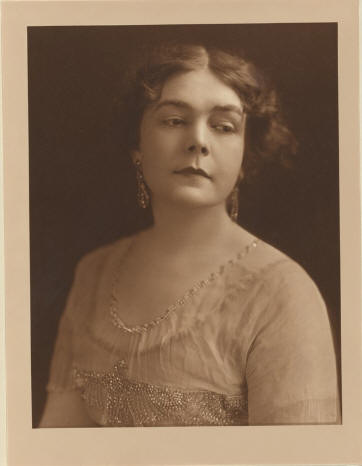Queer Places:
102 E 52nd St, New York, NY 10022
 Marjorie
Benton Cooke (November 27, 1876 - April 26, 1920) was an American monologist,
playwright, and novelist. A specialist in comic dramatic sketches and light
romantic fiction, she also wrote and performed monologues on suffragist
issues.[1]
She was a member of the Heterodoxy
Club.
Marjorie
Benton Cooke (November 27, 1876 - April 26, 1920) was an American monologist,
playwright, and novelist. A specialist in comic dramatic sketches and light
romantic fiction, she also wrote and performed monologues on suffragist
issues.[1]
She was a member of the Heterodoxy
Club.
She was born in Richmond,
Indiana to Joseph Henry Cooke and Jessie Benton Cooke and attended the University
of Chicago, graduating with a Bachelor of Philosophy degree in 1899. She
began working as a journalist soon after and by 1902 was touring the United
States as a monologist. Several of her monologues and one-act
plays were published in booklets and collected form. Her first novel, The
Girl Who Lived in the Woods, was published by A.
C. McClurg & Co. in 1910 and, like many of her future works, concerned the
overcoming of conflicts between an unorthodox romantic couple.[2]
Benton Cooke's most well-known work was the novel Bambi.
Initially serialized in
the American
Magazine from April to October 1914 and published in the same year by Doubleday,
Page & Co., it is the story of a young woman who impulsively marries an
idealistic but impractical writer and becomes a novelist and playwright
herself.[3] Its
humor and witty dialogue quickly made it a readers' favorite and commercial
success, with the first edition selling out two weeks before publication.[4][5] Bambi
was followed by other novels including Cinderella Jane (1917) and The
Threshold (1918), which both explore women's work, class, and the relations
between the sexes.
As an active supporter of the feminist
politics of her time, Benton Cooke performed suffrage monologues
at over a hundred gatherings including the National
American Woman Suffrage Association’s 1912 convention in Louisville,
Kentucky.[6] She
was a member of literary associations like the Little Room Club in Chicago and
the Authors League,
as well as of women's
clubs like the Women's University Club and the feminist debating and
activist group Heterodoxy,
both located in New York City.[2][7] She
was an editor and contributing writer for Four Lights, the journal of the New
York City chapter of the Women's
Peace Party.[8] In
1916 she contributed a chapter to The Sturdy Oak, a round-robin
novel that narrates the conversion of an anti-suffragist into
a suffragist reformer. Other contributors included Dorothy
Canfield Fisher and Fannie
Hurst, and the book's proceeds went to the suffrage cause.[9]
On April 26, 1920, Benton Cooke's death was announced via cablegram from Manila,
where she had arrived a few days previously on a world cruise with her mother.[10] Her
novel Married? was published posthumously and was one of at least four of her
works adapted into a silent
film. Her estate was estimated at $42,358 in 1922 and included $17,100 in film
rights.[11]
She died of pneumonia in Manila, while vacationing with her mother.
My published books:


BACK TO HOME PAGE

 Marjorie
Benton Cooke (November 27, 1876 - April 26, 1920) was an American monologist,
playwright, and novelist. A specialist in comic dramatic sketches and light
romantic fiction, she also wrote and performed monologues on suffragist
issues.[1]
She was a member of the Heterodoxy
Club.
Marjorie
Benton Cooke (November 27, 1876 - April 26, 1920) was an American monologist,
playwright, and novelist. A specialist in comic dramatic sketches and light
romantic fiction, she also wrote and performed monologues on suffragist
issues.[1]
She was a member of the Heterodoxy
Club.
